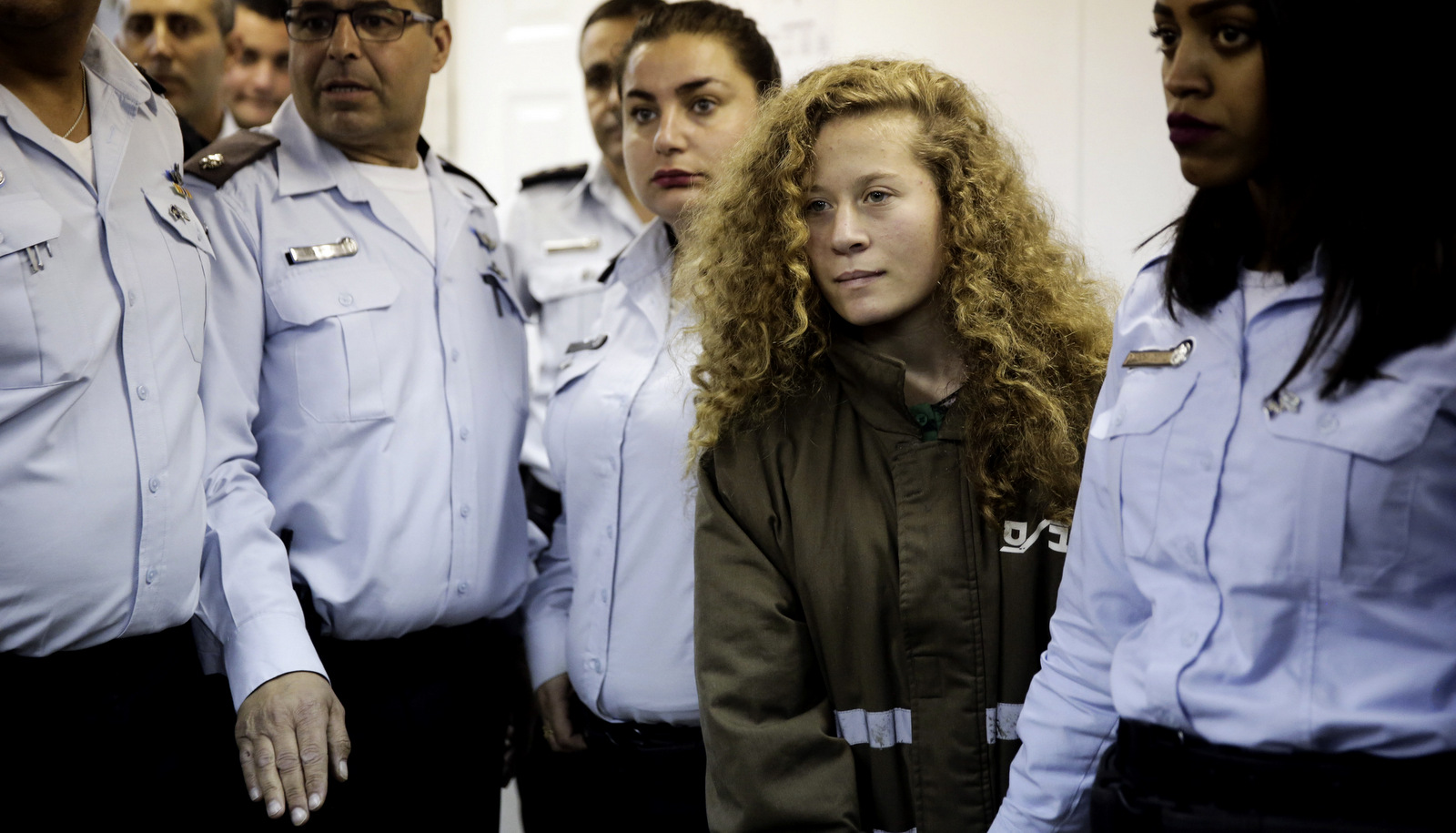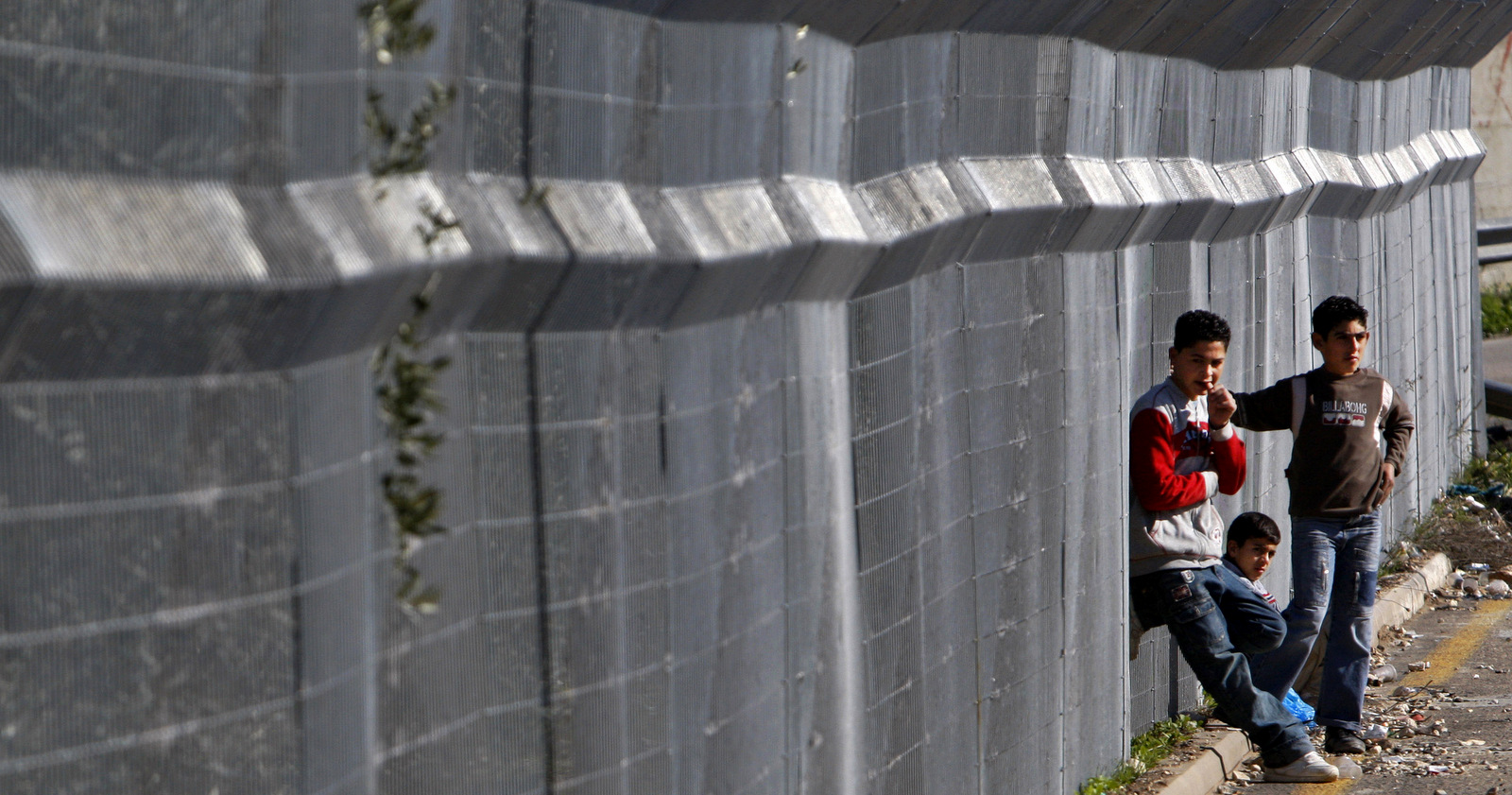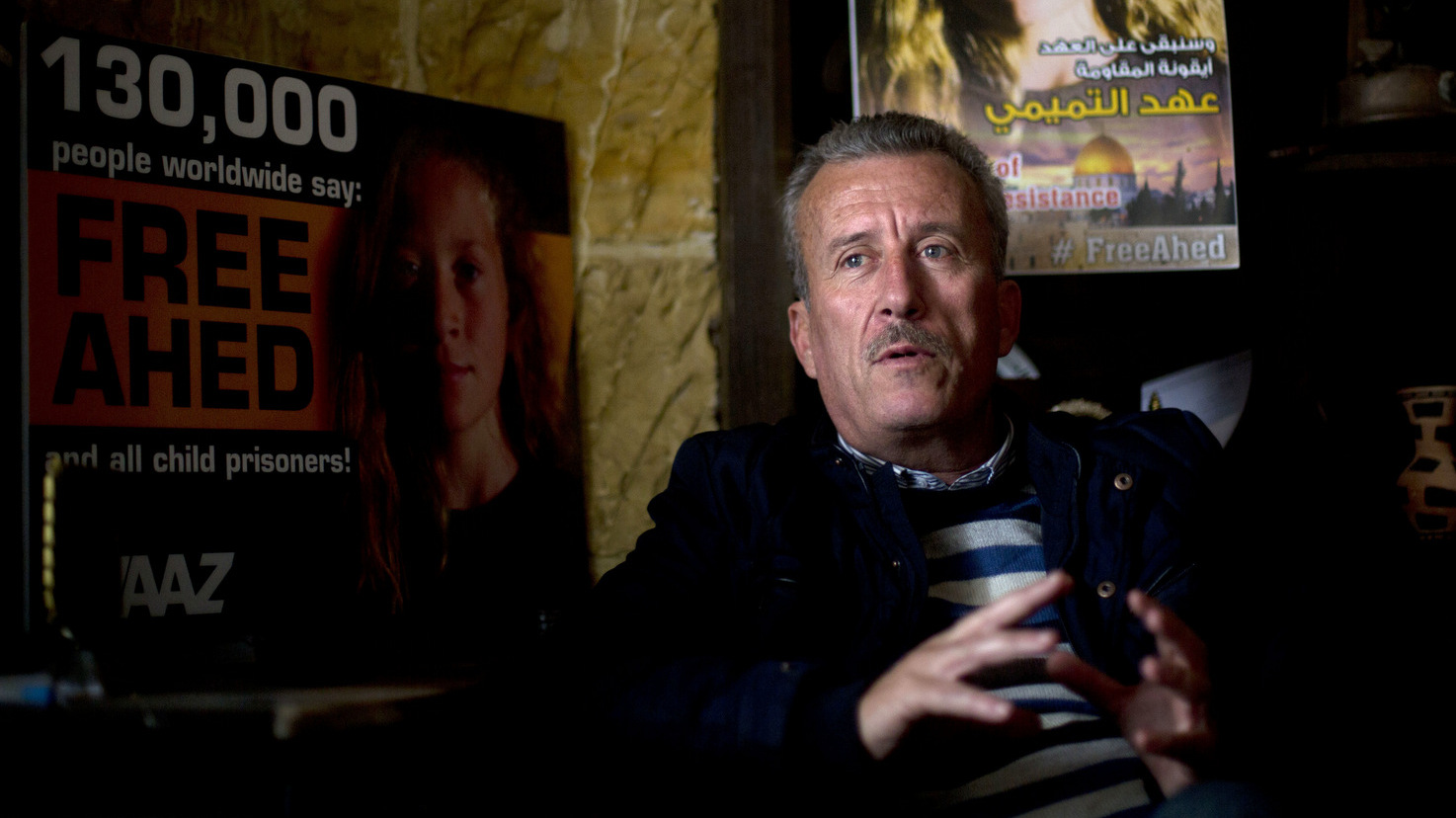JERUSALEM, PALESTINE — When you encounter face to face the systems of oppression as they are imposed by Israel on Palestinians, the shock leaves you searching for words. The dirt roads, dusty in summer and muddy in winter; the cold iron gates; the cement blocks; the metal revolving doors that start and stop abruptly, even violently and as you try to pass through; and the darkened windows from which orders are barked at people. The waiting areas where you sit waiting endlessly, knowing that the authorities have complete control of your time and you have no recourse, exposed to the elements, too hot in summer and freezing cold in winter. Life under Israeli rule means total disregard for your humanity and dignity. It means that any rude kid with a gun can and will control your life. Living as I do in the sphere of the privileged, I encounter this each time I travel to see my Palestinian friends.
I arrived in Jerusalem Tuesday afternoon and by Wednesday morning I was in Ramallah to meet my friend Bassem Tamimi. He was busy for a while so I sat at Stars and Bucks in Manara Square, had tea and argileh and watched the people in the street below. He told me that he had to be at Ofer military court at 4 p.m. for a hearing but at 1:30 p.m. he got a call from his attorney: “Bassem where are you? The hearing for Ahed and Nariman is at 2!”
They had been in jail at that point for exactly a month and, hearing after hearing, they were denied release for reasons beyond understanding. That day was going to be yet another hearing.
The Ofer military prison and court sit on land confiscated by Israel from the town of Bituniya, which is adjacent to Ramallah and just a few minutes’ drive from central Ramallah. I drove as fast as I could but the city streets are congested and because we are in a hurry it seems like it’s taking forever. As you approach Ofer there is an enormous open field. It was muddy from the rains and trucks and cars were parked everywhere. We got out of the car, walked between the puddles towards a gate and an enclosed walkway.
It is about a mile to get to the court. We go through one revolving door, then through the metal detector and our IDs are checked. Then a van that transports people the mile or so distance to the court complex comes by. We leave our phones, belts and money with the driver so that we don’t to have to take them off again at the next checkpoint. We get off and rush. Bassem’s phone is ringing again — it’s the attorney: “Where are you? They are already entering the courtroom.” As we rush ahead I can’t help thinking about Bassem — his wife and daughter are being held in that military prison, handcuffed and shackled, probably mistreated. It’s been a month and there is no end in sight.
We arrive at the final gate and I don’t have permission to go in. It takes twenty four hours to get the permission and I only arrived the previous day from overseas, so I wait in the open-air waiting area with a few Palestinians as Bassem rushes in. Waiting without knowing how long is part of the Palestinian experience. I see reporters and camera crews rushing in, wanting to report on what is now the biggest story coming out of Palestine: Ahed Tamimi, the 16-year-old girl who slapped an IDF officer. They have no idea that she is a daughter and that her father has to watch her small hands in handcuffs. He isn’t even allowed to speak to her.

My own daughter is one year younger than Ahed. I would lose my mind, I think to myself — but I never lived under military rule, under occupation, so I don’t know how to keep my composure when facing this sort of thing. After about an hour I see the camera crews starting to come out.
Journalist Mariam Barghouti fills me in on what happened. The judge refused to release Ahed and she must remain in prison until the trial. The reason the judge cited was that Ahed refuses to cooperate and pleads her right to remain silent — that makes her a danger, the judge said. And, as though things are not bad enough, her trial date is on her 17th birthday, January 31. Her mother, Nariman, is being held as well and her trial date is a week later, February 6. As I get this update and try to keep my head from exploding, Bassem is still inside giving interviews.
Read more by Miko Peled
- Fauda: An Israeli Netflix Series that Makes Oppression Sexy
- Ahed Tamimi Stood Up to Israel While the Rest of the World Bows
- Systemic Racism, Inequality Fuel Spread of Violent Crime Among Palestinian Citizens of Israel
- A One-State Solution with Equal Rights is the Only Answer to Trump’s Jerusalem Declaration
Twenty minutes later I see Bassem through the chicken wire. He comes out looking exactly as any father would look. Are there words to describe this feeling? I am at a loss for words again as we rush back to the car and drive off. His phone rings nonstop and he gives interview after interview — in Arabic, in English, then in Arabic again:
How do I feel? My wife and my daughter are being held by my enemy!”
The Times of Israel calls for an interview. This is a radical Zionist rag. They ask Bassem about Ahlam Tamimi and her husband Nizar. The two are relatives of Bassem, and have served many years in Israeli military jails. Ahlam was involved in the bombing of Sbarro restaurant in Jerusalem, which was located on a street corner I know well and often frequented. It is also across the street from the residence of the Israeli prime minister. Nizar was involved in the killing of a settler from the settlement Bet-El, which sits near Ramallah. They were both released from prison as part of the Gilad Shalit prisoner exchange deal.
How was Ahed influenced by her aunt Ahlam?” the reporter asked.
“Well,” Bassem replied, “both Ahlam and Ahed were influenced by the occupation and their want for freedom.”
“But Ahlam’s actions resulted in the killing of 17 Israelis – what do you say to that?”
“Israeli forces killed more than twenty of my family members, arrested and tortured me, shot my son and now they are holding my wife and daughter, what do you say to that?”
The reporter admitted he had no reply.
We kept driving, and fifteen minutes later the reporter called again: “We decided not to print the interview.”
That evening it was very cold and we stayed up late talking at Bassem’s house. Bassem’s three boys were home also. In the morning I could tell that the boys had been up late. When they got up they showed me videos of what transpired in the village while we were sleeping. Army jeeps screeching, engaged in what they call “clashes” with youth from the village. The army has a practice of entering villages late in the night, knowing this will disrupt people’s sleep, not to mention life. “There were no arrests,” the boys told us.
The Palestinian Authority has decided to take Israel to the International Criminal Court (ICC) over the case of Ahed’s arrest, so Bassem and I go to the office of Abu Jihad Al-Aloul, deputy leader of the Fateh party, to discuss this. We step in to Abu-Jihad’s office, Bassem introduces me, and we all chat for a while. Abu-Jihad reaffirms that the PA intends to take Ahed’s case to ICC and asks Bassem to return on Sunday to talk more. This was Thursday.
It’s late Thursday night when I leave on my return to Jerusalem. The road is dark except for the soft lights of Palestinian villages and the glaring lights of the Israeli colonies. I arrive at Ni’ilin checkpoint — a quick hello to the security people who man it and I am back in the sphere of the colonizer, driving along route 443, also known as Apartheid Road, passing by Ofer prison again but from the other side, where the road is paved and clean.

I love Fridays in Jerusalem. I have coffee with my mother, chat for a couple of hours, and then I am off to the city. My first stop is the Educational Bookshop on Salaheddin Street. Just think of the name for a moment. Salaheddin Street! Wow, a city that still has memories of this great Muslim warrior. “What are you doing out in this cold weather?” I am greeted as I enter the bookstore/cafe, which has become a sort of iconic meeting place. “It’s not that cold.” I reply and order warm Sahlab and tea with Nana.
The store is pretty empty when I enter but slowly it fills up. I contact my friend Munther Fahmi, who used to own another bookstore and was known as the Bookseller of Jerusalem. He owned the bookstore at the American Colony Hotel. Walking with him in the Old City of Jerusalem is a real delight. I know the city well, and I love it. For Munther the Old City is his backyard. He grew up running up and down the curvy alleys and stairways. He knows every shopkeeper and falafel stand and when he says a place has the best falafel, it really does have the best falafel in the city.
Munther and I were both born in Jerusalem. My family arrived in the 1920’s to colonize Palestine. His family traces its roots in the Old City of Jerusalem for centuries. I have full citizenship and full rights and he has no citizenship, not even permanent residence. He must leave the country in order to have his visa renewed. This is because, like me, he lived in the U.S. for many years and, also like me, he has a U.S. passport. Unlike me, Israel has taken away his Jerusalem ID because he is a Palestinian and — even though he returned many years ago, had a business and has a home in the city — they will not restore his legal right to reside in the city. But somehow all this did not hinder our joy of roaming the city on a cold wintery day. We ended up at the Jerusalem Hotel drinking tea before I drove him home.
Saturday evening, Bassem and I had a lecture at the Alternative Information Center (AIC) in Beit Sahour and we decided to drive together. It’s a long and sometimes harrowing drive from Nabi Saleh which is near Ramallah, in the northern part of the West Bank, to Beit Sahour, which is near Bethlehem and in the southern part of the West Bank. The connecting point between these two parts is Jerusalem and, unlike Jewish Israelis like me who are descendants of colonizers, Palestinians like Bassem, who have been residing in Palestine since Adam and Eve were chasing each other naked, are not permitted to enter the city, not even to drive through it.
So we take an alternate route which is long, dangerous and annoying. Still, we make the most of it. We begin by driving through the windy old back roads enjoying Palestine in its full beauty — which Bassem and I agree is unmatched. As we go from one small picturesque village to another, Bassem tells me the names and the history of each place.
We arrive in Beit Sahour ten minutes early, just in time for a quick cup of coffee. Baha Hilo, local activist and friend, hosted us and introduced us at the lecture. The audience was made of young Europeans and Americans who were there to see and learn. We had a great deal to say, mostly that it is time to act. Palestine is bleeding and time is running out.
Top Photo | Bassem Tamimi speaks in front of a poster showing his daughter Ahed at his home in Nabi Saleh near the West Bank city of Ramallah. Israel’s hard-charging prosecution of his 16-year-old daughter who slapped two Israeli soldiers has trained a spotlight on her family and its role in near-weekly protests against Israeli occupation staged in several West Bank cities. (AP/Majdi Mohammed)
Miko Peled is an Israeli-American activist, author, and karate instructor. Peled authored The General’s Son: Journey of an Israeli in Palestine, and speaks at venues around the world.


